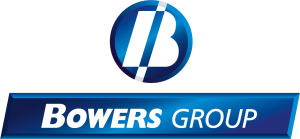ADLINK Technology Inc., a global leader in edge computing, is proud to launch its latest innovation, the EMU-200 series, an application-ready IIoT gateway that can easily meet the data network requirements of various harsh application scenarios, including renewable energy, electric vehicle (EV) charging, building management, and factory equipment monitoring.
To facilitate rapid deployment in diverse application environments, the EMU-200 series features a built-in smart software tool, the EGiFlow web console, which allows for seamless integration of multiple communication protocols. Paired with extensive connectivity options and highly adaptable hardware specifications, EGiFlow can cater to a wide range of on-site configurations while reducing the efforts required by engineers on development and deployment.
Integrating EGiFlow with the EMU-200 series simplifies the once complicated data transfer process between different systems and provides pre-configured data flow settings, alleviating the workload of solution developers and expediting the setup process for data collection, transferring and filtering from multiple sources, all achievable through a straightforward three-step setup.
To achieve broad connection coverage, the EMU-200 series integrates a variety of mainstream industrial communication protocols, such as Modbus TCP/RTU, MQTT, and OPC UA. Additionally, open charging point protocols (OCPP) for electric vehicle charging will soon be integrated. This comprehensive protocol support ensures data transmission compatibility, while avoiding issues caused a by lack of supported protocols. Furthermore, the EMU-200 series supports abundant I/O interfaces, along with Wi-Fi, 4G/LTE connectivity. This enables connection to data acquisition device such as remote IO and Ethernet DAQ systems, facilitating seamless connectivity from the edge to cloud platforms.
The EMU-200 series uses an ARM Cortex-A9 processor, known for its excellent power efficiency and suitability for operating under power supply restrictions. Its compact dimensions, coupled with multiple mounting options, and an impressive operating temperature range of -20 to 70°C, ensure adaptability even in harsh environmental conditions.
“Apart from the application-ready functions, the EMU-200 series is ideal for second development to fulfill a variety of applications from platform to integrated solutions,” said Jeremy Wu, Director of the Open Instrument Business Product Center.
To learn more about this innovative product line and how it can enhance your field site connectivity, please visit the link or contact our sales team for more details.
 Instrumentation Monthly Test | Measurement | Control
Instrumentation Monthly Test | Measurement | Control








